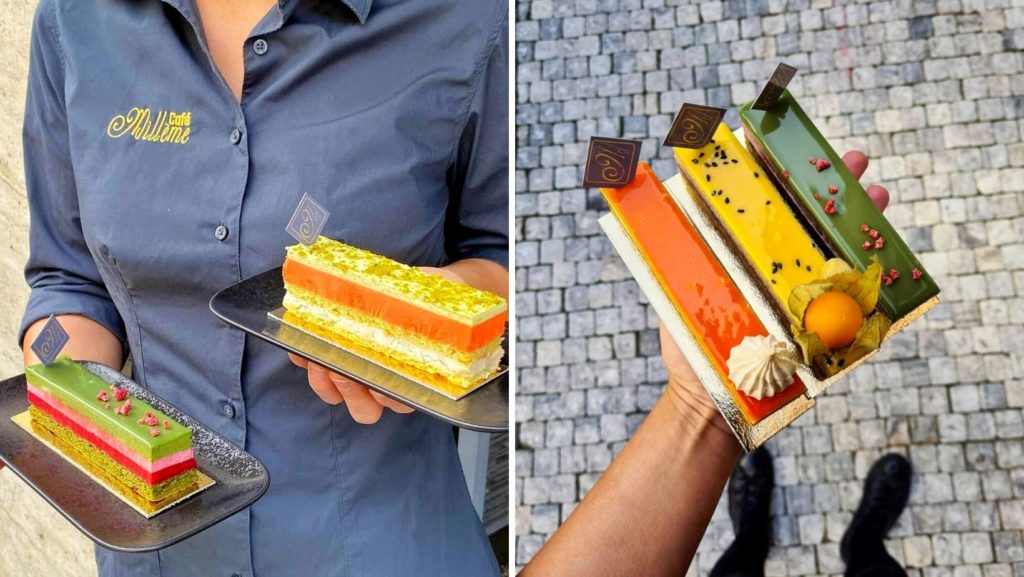SunExpress is launching a new direct seasonal route between Prague and Izmir, Turkey’s third-largest city.
The flights will operate twice a week, on Wednesdays and Sundays, from June 5th to September 29th, 2024.
Affordable Travel with Checked Baggage Included
Tickets are already available for purchase, with one-way fares starting from a budget-friendly CZK 3,000. This price includes a checked baggage allowance of up to 30kg, eliminating the need for additional fees.
The flight time is approximately 2 hours and 35 minutes. Departures from Prague will be at 9:40 PM, while flights from Izmir will take off at 7:00 PM.
SunExpress will operate the route using Boeing 737-800 or 737 MAX 8 aircraft, both configured to comfortably seat 189 passengers.
Additional Option: Smartwings Enters the Market
Starting May 30th, Czech airline Smartwings will also offer flights between Prague and Izmir. Their service will operate on Mondays and Thursdays.
However, it’s important to note that Smartwings’ one-way fares start from CZK 4,900 and do not include checked baggage in the base price.
Located on the eastern coast of the Aegean Sea, Izmir boasts a population of 2.96 million, making it Turkey’s third-largest city.
Surrounded by rolling hills, the city enjoys a typical Mediterranean climate with warm, dry summers and mild, rainy winters.
Would you like us to write about your business? Find out more
The Czech Republic’s consumer price inflation eased more-than-expected in January to the lowest level in nearly three years, largely due to a sharp slowdown in utility costs along with a continued fall in food costs, data from the Czech Statistical Office shows.
Consumer prices climbed 2.3 percent year-over-year in January, much slower than the 6.9 percent rise in December. Meanwhile, economists had expected inflation to slow to 2.9 percent.
Further, this was the weakest inflation since March 2021, the agency said.
The annual price growth in utilities eased markedly to 3.1 percent in January from 16.8 percent in December.
The decline in prices of food and non-alcoholic beverages deepened to 3.9 percent from 0.3 percent.
Meanwhile, transport charges rebounded 0.4 percent after a 0.2 percent drop seen in December. On a monthly basis, consumer prices rose 1.5 percent in January, versus an expected increase of 2.0 percent.
The monthly upturn was mainly attributed to higher utility costs, especially electricity charges.
The Czech Defence Ministry and local industry have identified 800,000 units of available ammunition that could be delivered to Ukraine within weeks, if funding are secured.
Ukraine desperately needs artillery ammunition to fend off Russian forces. Although the EU has promised to deliver one million rounds by March, it failed due to low production capacity.
The Czech Republic is, therefore, exploring the possibility of buying ammunition from outside the EU.
“Our Defence Ministry and our companies in the defence industry, through their contacts, have an overview of where equipment and ammunition are available,” Pavel said during a press briefing in Munich, where he attended the Munich Security Conference.
According to Pavel, the Czechs have identified a significant amount of 155mm NATO-standard artillery shells and the 122mm calibre often used in the former Soviet Union.
“As far as I know, our companies have identified, variously around the world, up to 500,000 NATO 155mm calibre rounds and up to 300,000 122 mm calibre rounds,” Pavel said.
“In cooperation with our partners, mainly from Denmark, the Netherlands and Canada, we are raising the financial resources to cover the transaction. And then we will transport the equipment and ammunition to Ukraine through our resources,” he added.
This information was later confirmed by Černochová, who added that Czechia could ensure the supply of ammunition to Ukraine if funding were secured. The minister said the issue had already been discussed at last week’s NATO defence ministers’ meeting.
However, Pavel and Černochová refused to reveal from which countries the ammunition could be bought in bulk.
“However, I cannot be more specific because the countries that could cooperate in this project have conditioned their participation on the fact that we will not disclose specific information about them,” Černochová added.
Former Czech Prime Minister Andrej Babiš lost his final appeal in Slovakia Wednesday in a case concerning allegations that he collaborated with communist-era secret police in what was then Czechoslovakia.
Babiš, who was born in Slovakia, was suing the Institute for National Memory, which holds parts of his secret police files following the division of Czechoslovakia into the Czech Republic and Slovakia in 1993.
In a decision on February 1 but only published Wednesday, Slovakia’s Constitutional Court, the highest court in the land, upheld the rulings by lower courts dismissing the case.
Some of the files were destroyed, but the institute said those that still exist contain evidence that Babis was an agent under the code name “Bures” from 1982. Babiš has vehemently denied that.
The regional court in the capital, Bratislava, originally rejected the lawsuit in 2018, but the Constitutional Court ordered a retrial, saying the institute could not be sued and the respondent should be the Slovak Interior Ministry.
The regional court dismissed the case again in 2022, followed by a similar ruling from the Supreme Court in September last year.
Babiš challenged that with a complaint filed with the Constitutional Court whose verdict completed the case.
Babiš is currently in opposition after his populist ANO centrist movement lost the 2021 parliamentary election.
He was running to become the Czech president in the election for the largely ceremonial post in January last year but lost to Petr Pavel, a retired army general.
American airline Delta Airlines has confirmed the resumption of direct flights between Prague and New York’s JFK airport starting May 10, 2024, as announced in a recent press release.
The airline plans to operate daily flights on this route until October 6, utilizing the Boeing 767-300 liner for the service.
The estimated travel time for the journey is 9 hours and 25 minutes.
Tickets for these flights are already available for purchase, with a base fare set at CZK 24,000 for a one-way trip.
“The resumption of direct flights to New York, which was one of the most attractive long-haul destinations from Prague in 2019, is excellent news,” said Jiří Pos, Chairman of the Prague Airport Board of Directors.
“It will be particularly appreciated by Czech passengers, who will gain a convenient and fast connection to the east coast of the United States.”
More choice in the U.S.
For customers looking to travel beyond New York, Delta offers same-day connections to 42 cities across the United States from its hub at JFK, making it easier to connect to friends, family and business colleagues.
The airline has more flights from Europe to New York-JFK than any other carrier and has a total of 190 flights taking off every day this month.
All Delta’s flights from the Czech Republic are operated in conjunction with its joint venture partners Air France, KLM and Virgin Atlantic.
Delta’s flights will be operated using Boeing 767-300 aircraft, featuring 25 seats in Delta One business class and 35 Delta Comfort+ and 165 Main Cabin seats, providing more choice to suit all needs and budgets.
On Sunday, December 10, the newly inaugurated Rajská zahrada railway station started operations in Prague.
Trains now make frequent stops every 10-15 minutes during rush hours and 15-30 minutes on weekends.
The station serves as a stop for all suburban trains, including S2, S3, S9, S22, and S34, traveling from Masaryk Station towards Kolín, Melník, and Milovice.
Access to the platform is exclusively available through a pedestrian bridge connected to the Hutě neighborhood.
Anticipated in the first quarter of 2024 is the completion of the second segment of the bridge, extending over Chlumecká Street to the Rajská zahrada metro station.




Czech President Petr Pavel during the meeting with the commanders of Czech Armed Forces warned the public that the supply of weapons needed for the success of Ukraine is being obstructed and does not meet expectations.
Source: Pavel’s speech cited by a Czech information agency ČTK, as reported by European Pravda.
“This is not the best starting point to survive a hard winter and achieve success against an opponent who used all his time, learned his lessons, increased military production, enhanced military production plans and is able to achieve the same quantity or even more of military equipment and ammunition than we are able to send from the West.”
Pavel remarked that the Ukrainian counteroffensive is not developing in the way Ukrainians had expected: among other things, the Western support was not sufficient and quick enough, and the time spent on preparations allowed Russia to prepare for the offensive by the Ukrainian forces “very well”.
Pavel added that the supply of armament needed for Ukraine to achieve success is still being obstructed and does not reach the necessary level. And the Ukrainian soldiers are not only understandably tired but also more and more disappointed with the Western support.
The Czech president noted that Russia’s war against Ukraine brings with it “a big risk”, which is tiredness from the war, felt not only by the two sides at war but also by all the countries which support them.
“This may cause increasing pressure to end the conflict with some sort of an agreement. An agreement, if it is made, will of course be based on the real situation in the battlefield,” Pavel added.
This is not the first time that Pavel, former head of the NATO Military Committee, has expressed pessimistic forecasts about the course of the Russian full-scale invasion of Ukraine.
At the beginning of November, he said that the current situation on the front shows no signs that Ukraine may prevail on the front. Meanwhile, Pavel is against “tiredness from the war” and concessions to Russia.
Pařížská Street in Prague has once again been ranked among the 20 most expensive shopping streets in the world in terms of rents, according to data from Cushman & Wakefield.
The survey, which compares nearly 50 countries worldwide based on the level of rents in retail space, places Pařížská Street in the Czech Republic at the 19th position.
As of the third quarter of this year, the highest rent reached EUR 2,700 (more than CZK 66,000) per square meter annually, equivalent to about EUR 225 (more than CZK 5,500) per square meter per month.
This positions the street as the 19th most expensive shopping destination globally, 11th in Europe, and the top spot in the Central and Eastern European (CEE) region.
“Pařížská has long been a primary destination for luxury brands entering the CEE region. Every year, we witness the opening of a store for one of the world’s luxury brands here,” says Jan Kotrbáček, Partner and Head of Retail Leasing, CEE, Cushman & Wakefield.
This marks the second inclusion of Pařížská in the ranking, surpassing Na Příkopě Street, which represented the Czech Republic in previous years in terms of retail rents. The Czech Republic consistently stands out as the only CEE country to appear in the top 20.
There were no significant changes at the top of the ranking this year compared to the previous year. New York’s Upper 5th Avenue retains its first-place position with retail rents of EUR 20,384 (almost CZK 500,000) per square meter per year, or almost EUR 1,700 (almost CZK 42,000) per square meter per month. Milan’s Via Montenapoleone remains the second most expensive shopping avenue in Europe.
On 21 December, Prague’s O2 Arena will host a Christmas concert featuring more than 130 artists from the Czech music scene.
Seven well-known artists, including Thalia Award-winning actress Eva Burešová, Ondřej Ruml and Kateřina Maria Ticha, accompanied by 70 musicians from the Hradec Králové Philharmonic and the Permoník Karviná Choir, will put on stage a show featuring 27 songs from various genres, including classical music, pop and jazz, in new and innovative arrangements under the baton of Stanislav Vavřínek.
“We are not preparing a classical Christmas concert, but a musical experience,” said arranger Jan Lstibůrek. “The audience will listen to Christmas melodies and themes they know from the radio, but for the first time ever in symphonic arrangements written specifically for particular composition performers, philharmonic and choir, and for the unique space of Prague’s O2 Arena.”
Along with the sound, the evening will be illuminated by visual components of color and an extraordinary stage design. “At one moment, modest and intimate, the next moment, monumental, so that you feel like you are in a musical temple.
All these elements together create a complete experience,” said Lstibůrek. The organizers say they hope for the concert to become the start of a new Christmas tradition in future years.
Tickets are now available from the Ticketmaster and Ticketportal platforms. You can find more information here
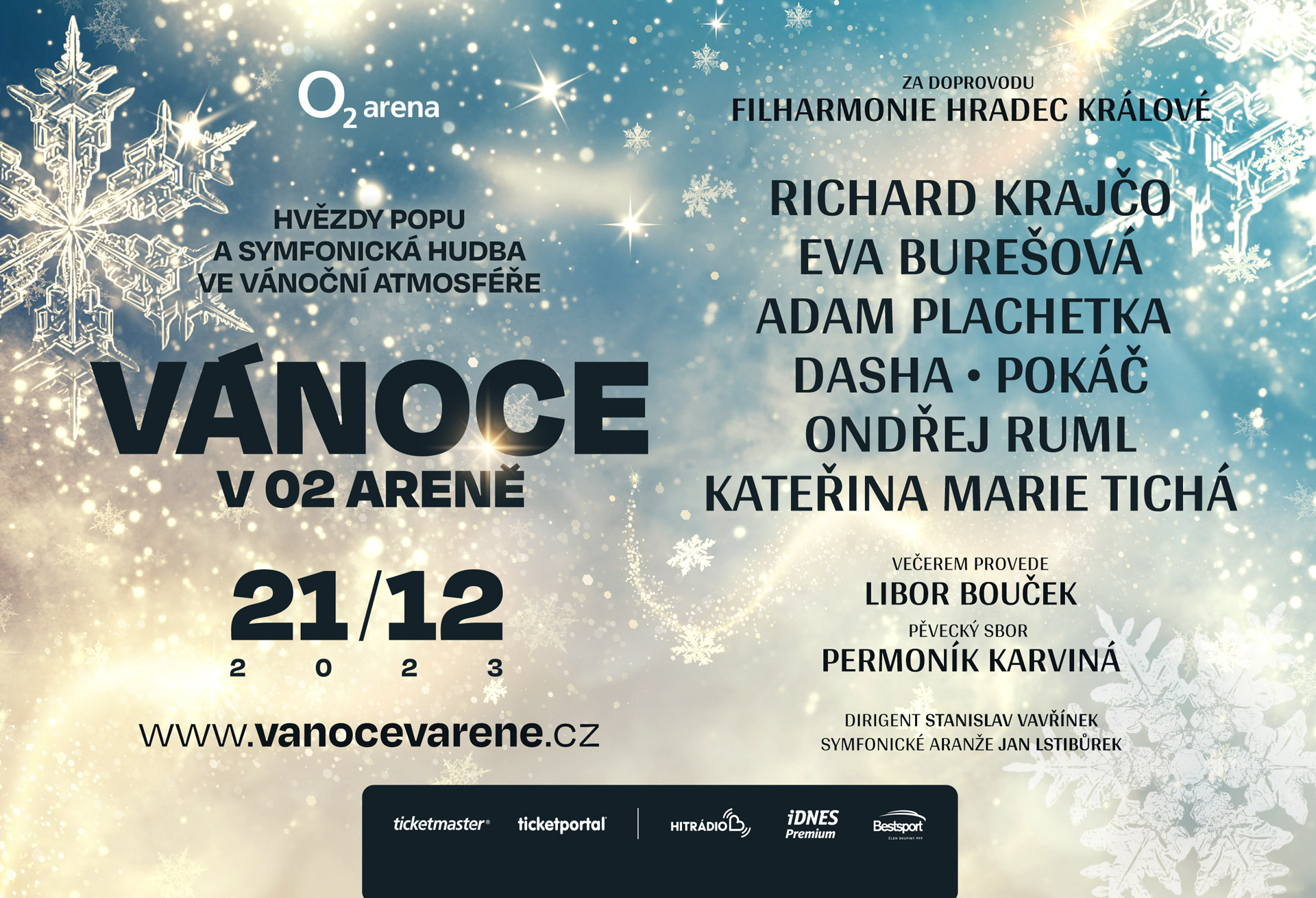
Our best stories straight to your WhatsApp. Sign up here
A rally supporting Israel took place in the center of Prague on Wednesday evening, November 1.
The event, held at Old Town Square, drew several hundred participants; approximately 300 people attended, according to the iDNES portal.
Prominent figures attending the rally included Czech Prime Minister Petr Fiala, Ombudsman Klara Šimáčková-Laurenčíková, film director Jan Hřebejk, Deputy Chairman of the Chamber of Deputies Jan Skopěček, Education Minister Mikuláš Beck, MP Patrik Nacher, former Prime Minister of the Republic Jan Fischer, and German Ambassador to the Czech Republic Andreas Kühnne.
Addressing the crowd, Prime Minister Fiala emphasized the importance of standing with Israel in the international arena amidst ongoing debates about the terrorist events of October 7. He asserted that Israel, with few allies, required steadfast support, expressing pride that the Czech Republic stood among them.
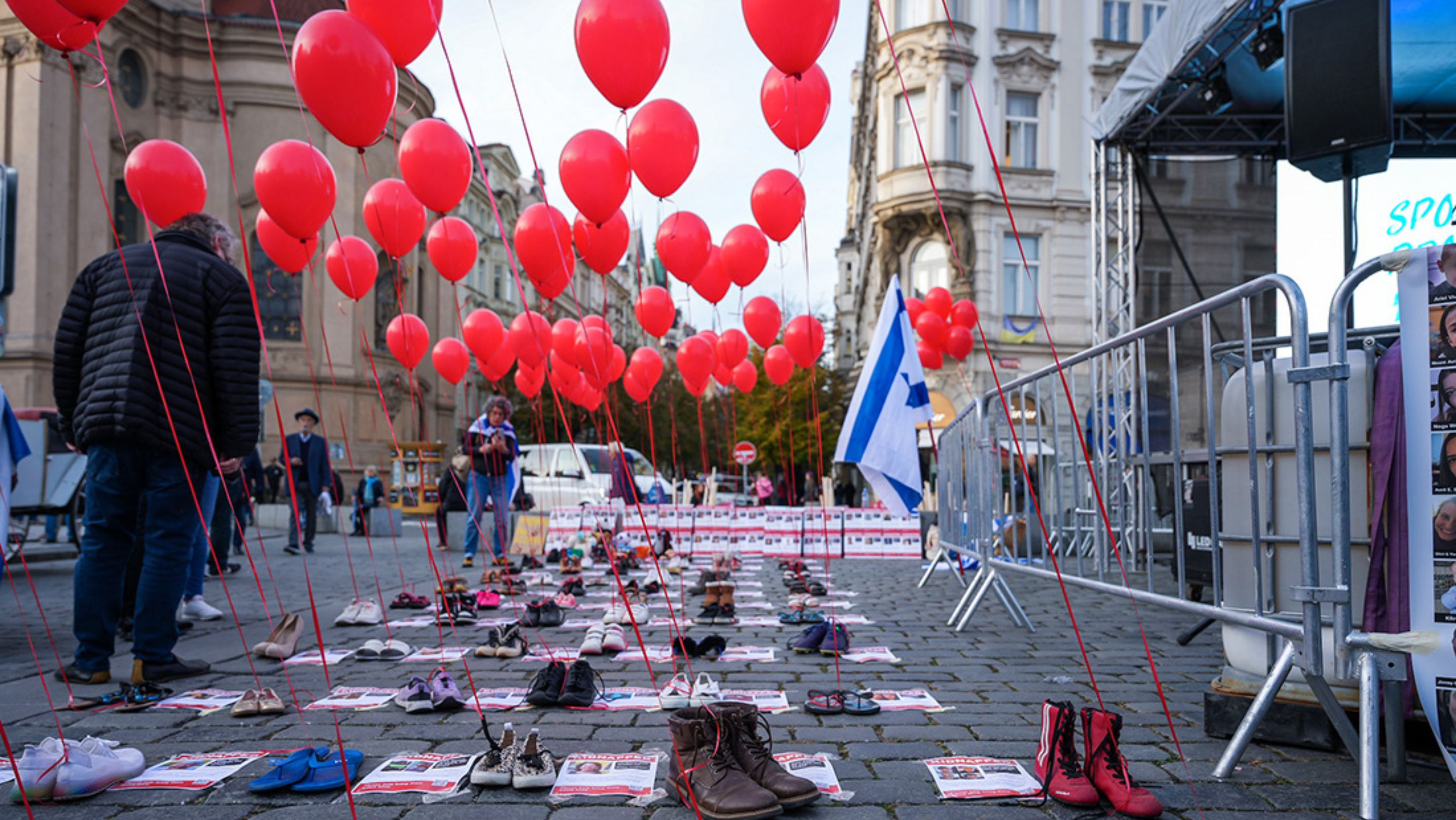
German Ambassador Andreas Kühnne echoed this sentiment, affirming Germany’s unwavering support for Israel.
He emphasized their participation in the ‘Together for Israel’ initiative, condemning the actions of Hamas terrorists, including the killing of civilians, and denouncing anti-Semitism both domestically and globally.
The rally, organized by the “Federation of Jewish Communities in the Czech Republic,” saw participants displaying Israeli flags and images of individuals, both children and adults, abducted by Hamas militants.
The event commenced with the playing of the Czech and Israeli anthems, followed by a minute of silence honoring the 1,400 Israelis who lost their lives.
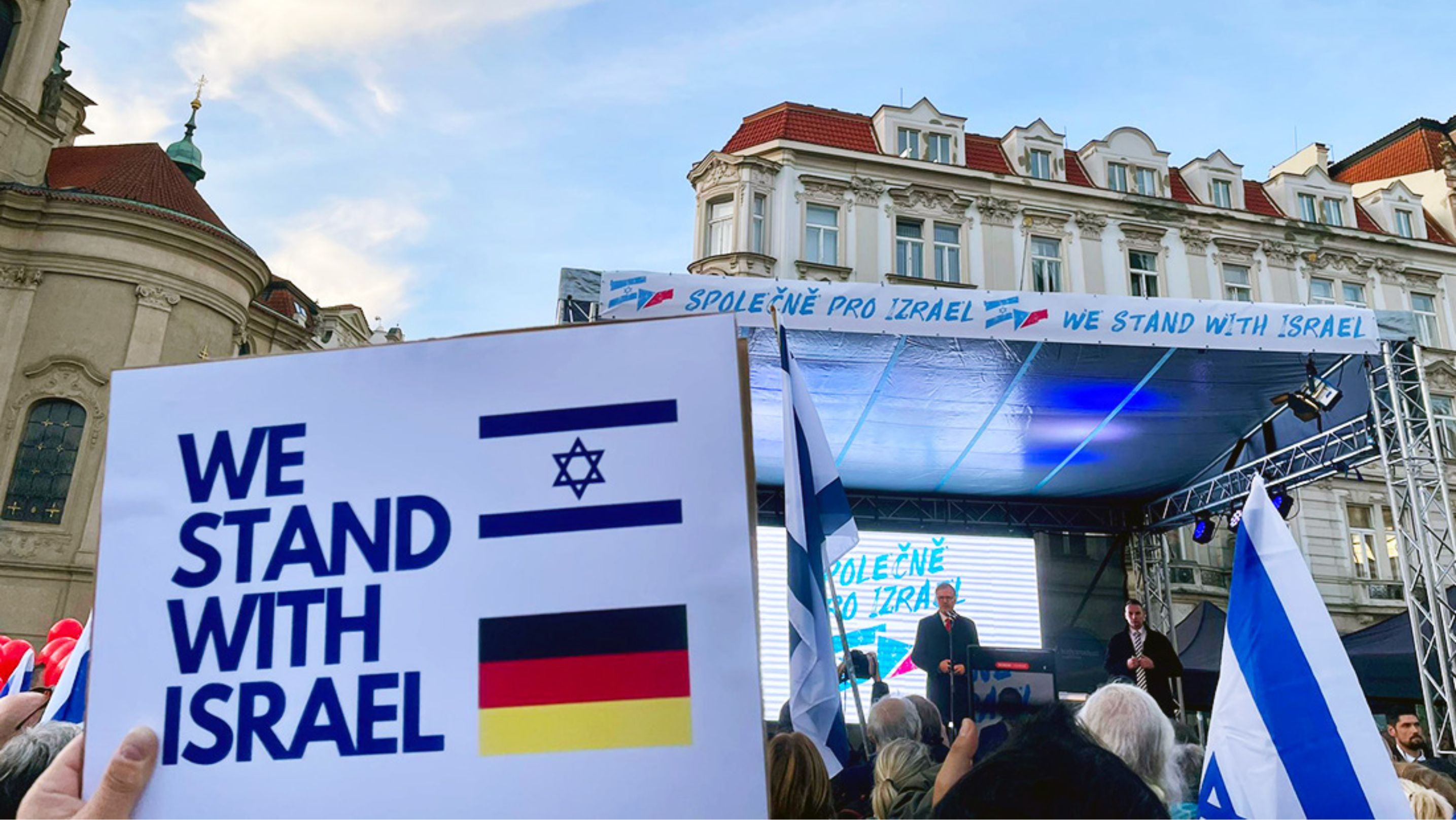
Russia’s share of total Czech oil imports grew in the first half of this year despite EU restrictions, an oil transit company said today.
“The share of Russian oil imports via the Druzhba pipeline versus imports from other countries via the IKL pipeline reached about 65/35 per cent in the first half,” Barbora Putzova, spokeswoman for the state-owned Mero company, told AFP.
In 2022, the share was 56 versus 44 per cent in favour of Druzhba, she added.
Industry and trade ministry data have shown this year’s share of oil transported by Druzhba into the EU member state was the highest since at least 2016.
The EU slapped a ban on most oil imports from Russia in May 2022, three months after Russia invaded Ukraine, but the Druzhba pipeline was exempted.
Jiri Gavor, head of the Czech Association of Independent Energy Suppliers, said Poland’s PKN Orlen, which runs Czech refineries, was probably driven by economic reasons to stick to Russian oil.
“I’d say PKN Orlen… benefits from the fact that oil transit via Druzhba is not banned here so far, it’s legal and it’s cheaper than oil from other sources,” he told AFP.
In May, Mero said it had signed a deal to end Czech dependence on Russian oil as it pledged to finance an expansion of the Transalpine oil pipeline (TAL) which supplies oil from Italy to central Europe.
TAL transports oil from the Italian port of Trieste to southern Germany, where it connects to the IKL pipeline taking it to the Czech Republic.
The country’s TAL capacity is set to double to an annual eight million tonnes of oil starting in 2025.
Prague already weaned itself off Russian gas earlier this year.
Tired of the average croissant and coffee breakfast combo? Hunting down a quiet new brunch spot with tasty treats? Sick of staring down an unchanging menu at the local lunch chain? If so, Café Millème is the place to visit.
Known for its unique and varied assortment of international flavor fusions, every pastry promises a new eating experience.
Café Millème is the brainchild of the French business team Daniel Biguine and Valexia Panier. An art enthusiast and artist respectively, these two best friends opened the cafe in 2008 with the hopes to unite all the continents through food.
Adine Agakishieva, the third co-owner and the cafe’s chef, handles the recipes and pastry making. A Kyrgyzstan native turned Prague resident, Adina received her formal culinary training in France.
For macarons, the cafe currently offers over 20 flavors, including unique fusions like matcha raspberry, yuzu and chocolate, and yuzu and wasabi.
Other Japanese-inspired flavors include hojicha tea, which is a type of Japanese green tea originating in the Kyoto region. Unlike matcha, the hojicha leaves are roasted at higher temperatures, making for a much sweeter and smokier taste.
For the less adventurous, the cafe also carries a wide variety of safer (but no less colorful), fruit-flavored macarons. These include apple, rhubarb, orange, and raspberry. Savory food item seekers can also find something at Café Millème, as the store carries an assortment of quiches.
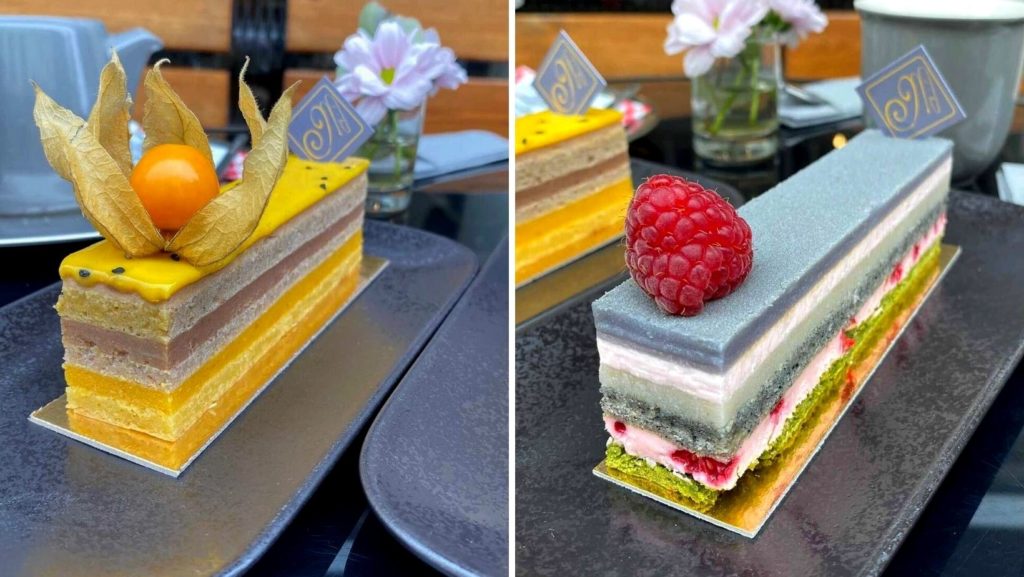
With over 70 recipes in stock, Café Millème changes its menu every season. For the summer the cafe stocks up on fresh, fruity recipes.
As the weather cools, their offered pastries will become creamier in taste and warmer in flavor. Patrons can expect to see classic autumnal recipes with spiced flavors like pumpkin, cinnamon, and chestnut.
True to Café Millème’s artisanal practices and keen decorative eye, these delicacies are elegantly plated, making every dessert an Instagram-worthy work of art. Many of their pastries are also named after cities related to the recipe, elevating the global tasting experience.
Per Adina, most of the cafe’s ingredients are imported; their website lists their chocolate as originating from countries like Mexico, Tanzania, and Madagascar.
They also use cashew nuts from Brazil, pandan from Thailand, and guava from Cuba. Their flour, however, is locally sourced.
Located at Klimentská 2067/34, Café Millème is open weekdays from 9 am to 7 pm. On Saturday and Sunday, the cafe opens at 10 am but closes at 7 pm and 6 pm respectively.
